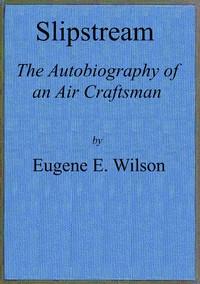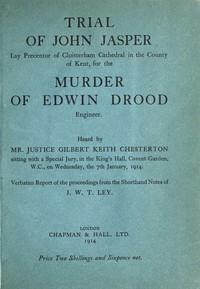|
|
Read this ebook for free! No credit card needed, absolutely nothing to pay.Words: 51711 in 15 pages
This is an ebook sharing website. You can read the uploaded ebooks for free here. No credit cards needed, nothing to pay. If you want to own a digital copy of the ebook, or want to read offline with your favorite ebook-reader, then you can choose to buy and download the ebook.

: Rajah Brooke by St John Spenser Sir - James Rajah of Sarawak 1803-1868; Sarawak (Malaysia) History; Sarawak (Malaysia) Kings and rulers Biography@FreeBooksThu 08 Jun, 2023 ce which had fallen upon Sir James. But this abuse affected none of the Rajah's friends, who were the flower of Singapore society. The Rajah had not been a week in the capital when his influence was as completely re-established as when he had an admiral and a squadron at his back. The grant of Sarawak was confirmed, and a new deed was made out, giving him the government of the rivers, as far as the Rejang, on the payment of ?1000 a year. Not even Mr Hume could say that he obtained these concessions by the use of force. While we were in Brunei, we lodged in the Sultan's palace, and were fed from the royal kitchen; we found the cuisine excellent. The Sultan and pangerans were constant visitors, and we enjoyed our stay among them. Not only did the Brunei Government confirm public grants, but they handed over to the Rajah the originals of the letters addressed to them by Mr Napier and others, showing how active his enemies had been as soon as it was known that a Commission of Inquiry had been granted by our vacillating ministers. Nothing could better illustrate the conduct and character of the Rajah than the results of this visit. Here was this man, under the ban of the British Government, exposed to every insult from a reptile press--fortunately among English papers a very small minority--and apparently in deep disgrace. Yet in his own adopted country he was respected, loved and trusted beyond any other man by all races and creeds. Upon our return to Sarawak we heard of Lord Clarendon's instructions to the Commission which was to inquire into Sir James Brooke's conduct and position. As I propose to devote a few pages to it later on, I need not dwell upon them now. The Rajah had long meditated a scheme to bring the Land Dyaks of Sarawak, Samarahan and Sadong under the direct rule of the Government. Up to the year 1853 the Dyak tribes had been apportioned among the three Datus or Malay chiefs, which was the immemorial custom; but it was found in practice to work badly, particularly in the hands of the Datu Patingi. He was an ambitious man, fond of parade, and kept up two large establishments for his principal wives. To support the expense, he not only exacted all that was legally due to him, but carried on a system of forced trade, preventing the Dyaks from buying, except of him and his agents--a truck trade on an extended system and in its worst form. The complaints which reached headquarters were numerous. After he had married his daughter to one of the Arab adventurers on the coast, who pretended to be a descendant of the Prophet, his extortions knew no bounds. The Rajah determined to pay the Datus fixed salaries, fifty per cent. beyond their legal dues, and to insist on the trade with the Dyaks being as free in practice as it was in theory. The Malay chiefs were pleased with the arrangement; but gradually the old abuses of forced trade were reintroduced by the Patingi, and the Rajah was often obliged to interfere to protect the Dyaks. The Patingi became dissatisfied when he found his evil courses checked, and began to conspire against his benefactor, who had saved his life after the civil war was ended; and when he heard that a Commission had been appointed by the English Government to try the Rajah, he became very active in his intrigues, and proposed to the other chiefs to expel the English from Sarawak. None joined him, and though they kept a watch on his proceedings, they never breathed a word of the nascent conspiracy either to the Rajah or to any of his officers. When the whole executive Government, English as well as Malay, were away on an expedition, a brave young chief, Abong Patah, came to me and revealed all the details of the plot. I instantly sent off the news to the Rajah, who did not doubt its truth for a moment. He had himself observed very suspicious movements of the Patingi's armed vessels, and had also noticed that whenever that chief anchored near the English war prahu, where all the Rajah's officers assembled every evening, the other chiefs would, apparently by accident, allow their prahus to drop alongside. The Rajah communicated the discovery to some of his most trustworthy followers, both English and Malay, but left the Patingi in ignorance, though judicious precautions were taken to frustrate his machinations. As soon, however, as the Rajah returned to the capital, he summoned a meeting of all the chiefs and principal men of the country, and in open court accused the Patingi of all his crimes and misdemeanours. He told him that on account of the respect he had for his family he would not try him for high treason; but that all his arms and ammunition must be handed over to abide the decision of the Government. The Patingi was too surprised to deny his guilt; in fact, he knew that every chief present was aware of his criminal intentions. It ended by his being permitted to make the pilgrimage to Mecca. The Rajah's leniency, though judging by subsequent events misplaced, was so natural that it met with general approval, except among the more far-seeing of the Malays, who predicted that this ungrateful chief would yet do the English an ill turn. The Rajah then tried an experiment, of which some doubted the wisdom, of supplying the place of the deposed Datu by appointing the head of the Mohammedan priesthood in Sarawak to become the third ruling Malay chief. He was brother to the Datu Bandhar--a quiet, honest, good Malay. How well the Rajah judged has been shown by the subsequent history of Sarawak. The Datu Imaum has always proved the mainstay of the English in all their troubles and difficulties; and, although much over eighty, I heard of his being well and active until quite recently. The Rajah had intended to adopt no warlike measures against the pirate Dyaks, headed by the notorious chief Rentab, until the Commission was over, but after waiting fifteen months, and finding no signs of its assembling, he determined to lead an expedition against them. Previous attempts by his officers had failed, but this expedition was so well organised that its success was assured. Eight thousand Malays and Dyaks answered to the summons of their chief, whilst an expedition of fifteen hundred men threatened the enemy in the interior of the Rejang, and well-armed war prahus anchored in the Seribas. We pushed up the great Batang Lupar river, then ascended the Sakarang as far as our big war boats would go, built a fort for their protection, left a garrison--and there the Rajah was persuaded to remain, as his state of health did not permit him to expose himself to the further hardships of the advance. Free books android app tbrJar TBR JAR Read Free books online gutenberg More posts by @FreeBooks
: Needler by Garrett Randall Emshwiller Ed Illustrator - Science fiction; War stories; Human-alien encounters Fiction; Weapons Fiction@FreeBooksThu 08 Jun, 2023

: The diagnostics and treatment of tropical diseases by Stitt E R Edward Rhodes - Tropical medicine@FreeBooksThu 08 Jun, 2023

: Slipstream: the autobiography of an air craftsman by Wilson Eugene E - Wilson Eugene E. 1887-1974; United States. Navy Aviation; Aircraft industry United States Biography@FreeBooksThu 08 Jun, 2023
|
Terms of Use Stock Market News! © gutenberg.org.in2025 All Rights reserved.






